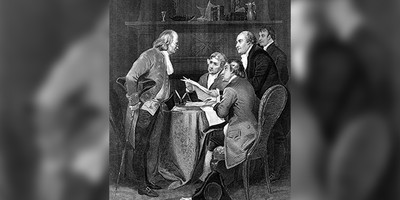Andrew Ferguson has assumed the chairmanship at the Federal Trade Commission (FTC). Ferguson rises with one mandate: to be unlike his predecessor. After a mostly placid and pacific half century of bipartisan consensus, outgoing Chair Lina Khan attempted to revivify long-buried antitrust theories. This initiated a fierce struggle over the very purpose of antitrust enforcement and the identity of the institution she led. A revanchist, she sought extend the FTC’s dominion to reclaim powers long since wrested from it. She operated less as a disinterested umpire of competition policy disputes or a protector of consumers than as a de facto central planner.
To gain the policy ground she coveted, Khan had to lay claim to new legal powers. To that end, her FTC advanced expansive, vague, and thoroughly dubious interpretations of its statutory authorities, with respect to both enforcement and rulemaking. The nature of this campaign was essentially political, not legal. Khan has admitted to stretching existing law to bring suit against the disfavored. She added that she hoped her courtroom failures might spur Congress to grant new powers. According to agency staff, Khan seemed happy to trade operational effectiveness for attention, as outlined in a 2024 House Judiciary Committee report. Public relations have trumped economics and the rule of law.
Khan’s teleological and ontological misconceptions about the FTC have yielded demonstrably shabby outputs. Head-scratching legal theories and embarrassing judicial rebukes only begin the catalogue of the agency’s missteps. The hallmarks of the Biden era include negligently deficient economic analysis — a shocking development from an agency once considered a paragon of analytical rigor. This period was also typified by lawsuits whose factual claims do not support the claims of unlawful conduct made therein.
Moreover, in one case — which dealt the agency its first great courtroom loss — Khan flouted the recommendations of an ethics official and hid that fact from Congress. To an agency functioning as a political activist, such details as data, evidence, and ethics have mattered little. Add to these faults many more, recounted at length by J. Howard Beales III and Timothy J. Muris. It’s little wonder that the regard held for the agency by its staff plummeted once Khan arrived.
Recommended
The FTC’s suit against PepsiCo (announced the Friday before Trump’s inauguration) epitomizes the Khan FTC’s dysfunction. In a fiery dissent, Commissioner Melissa Holyoak labeled it “the worst case I have seen in my time at the Commission.” As she outlines, the FTC brought the suit under an inapt statutory provision, a slight-of-hand perpetrated for no purpose other than to free itself from the evidentiary burdens it ordinarily must meet to win this sort of case. Moreover, the agency declined to gather evidence to resolve pressing factual questions, preferring instead to rely on “conclusory allegations,” which “do not make the claims plausible, nor do they provide reason to believe the law has been violated,” Holyoak wrote.
In the complaint, the FTC attempts to “revive” the Robinson-Patman Act (RPA). The RPA is a long-dormant law, abandoned by antitrust officials and courts alike for its poor drafting and economic incoherence. This revival, as noted by now-Chair Ferguson in his own dissent, is the lawsuit’s political end. “Whether anyone is actually violating the law is not relevant to reviving it,” he argued. “The Complaint will generate much press, which in turn creates opportunities for editorials, speeches, and Tweets.” A fitting coda to the term of a nakedly political FTC.
Recent years have clarified one point, if nothing else. Purportedly “independent” administrative agencies have become the tools of presidentially driven politics. From this juncture, two paths of reform seem available — either to attempt a restoration of the citadels of disinterested expertise or to raze them altogether. The cult of the unaccountable unelected bureaucrat is not native to the American political landscape but an innovation of the Progressive era. That era failed to grasp the self-evident truth that replacing the label of “politics” with “administration” does not, in fact, render the decision-making of the “administrators” apolitical. Renaming a rose cannot change its scent. Bias, blindness, and error cannot be banished from the human psyche or, therefore, from the activities of governance.
That the FTC managed to make itself effective and to develop a prudent self-control does not validate its unconstitutional scheme, which seeks to wrest executive power from the Presidency. That the agency has trimmed its own statutory powers in recent decades does not insulate those statutes from the scrutiny of an increasingly originalist judiciary, armed with such weapons as the nondelegation doctrine.
The FTC’s antitrust powers should — as proposed in the One Agency Act — be removed to the Department of Justice. However, the 119th Congress and President Donald Trump can push further: they should rehouse all FTC activities squarely within the executive branch and terminate the agency. This end would befit an institution that has for more than a century operated — and often abused — an unconstitutional merger of legislative, executive, and judicial powers.
Until such time, Chair Ferguson would do well to reverse as much of his predecessor’s legacy as he can manage — a task for which he is well-prepared.
David B. McGarry is the research director and program manager for FTC Mission Creep, a project of the Taxpayers Protection Alliance Foundation.

























Join the conversation as a VIP Member